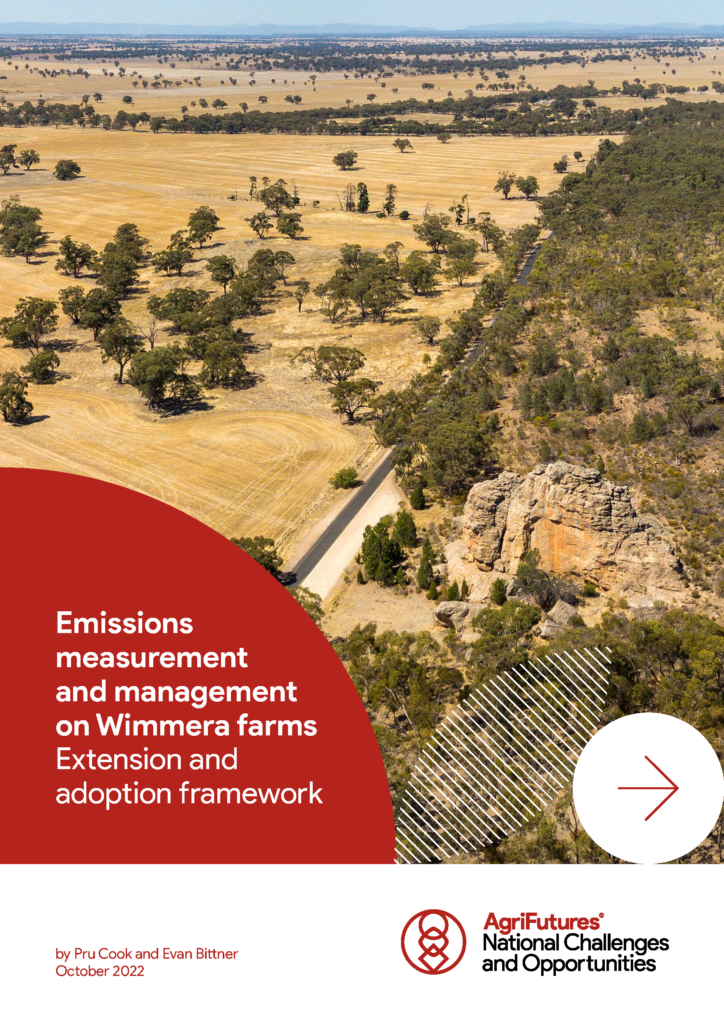Pathways to develop a future-ready workforce
Like the industries that AgriFutures Australia serves, the future workforce will likely be broad and diverse. For rural industries to be better prepared for the...
 NATIONAL CHALLENGES AND OPPORTUNITIES
NATIONAL CHALLENGES AND OPPORTUNITIES 
48 pages
Published: 8 Jun 2023
Author(s): Pru Cook, Evan Bittner
ISBN: 978-1-76053-372-4
Download report PDF
DownloadPurchase a hard copy - AUD $50
The economic environment in Australia surrounding greenhouse gas emissions and carbon sequestration practices is underpinned by our agricultural and land management sector.
It is therefore essential there is awareness of this sector among the farming community and that the attitudes and intent of individual farmers and growers is understood to support their ongoing participation. Against this backdrop, AgriFutures Australia’s Carbon Initiative has invested in an integrated science-business-extension program to support Australian farmers and growers with understanding this emerging opportunity.
The Grampians region of Victoria has set an ambitious target of achieving net-zero emissions by 2050. Agriculture is the backbone of the region’s economy, with 78 per cent of land area dedicated to broadacre and mixed farming. To meet a net-zero target for the region, there is a need for, and willingness among, farm businesses to measure and manage their greenhouse gas emissions. A primary objective of this project was to understand farmers’ awareness and knowledge of their individual business greenhouse gas emissions. In conjunction, the project sought to promote the processes that drive carbon sequestration in the landscape and the practices required to help farm businesses reduce emissions at the individual farm level.
Through surveys, case studies, workshops and forums, it was found farmers across the Grampians and Wimmera region had low awareness of practical farm practices that lower greenhouse gas emissions, low engagement with a range of calculators and decision tools that predict farm greenhouse emissions, and low interest in exploring the topic. There was a widespread belief that most farming systems already had a low greenhouse gas emissions baseline and many believed they were already at a stage of net-zero emissions or were carbon-positive.
The project developed a four-segment approach to extension of knowledge to farming businesses, namely social licence, productivity, environment and market focus. Each of these drivers require different approaches to encourage farmers to engage with emissions measurement and adoption of practices that reduce pre-farm gate emissions. Any extension activity should start by seeking to support one of the four segments. There was a clearly identified need for activities to inform farmers of the available options and the benefits of those options.